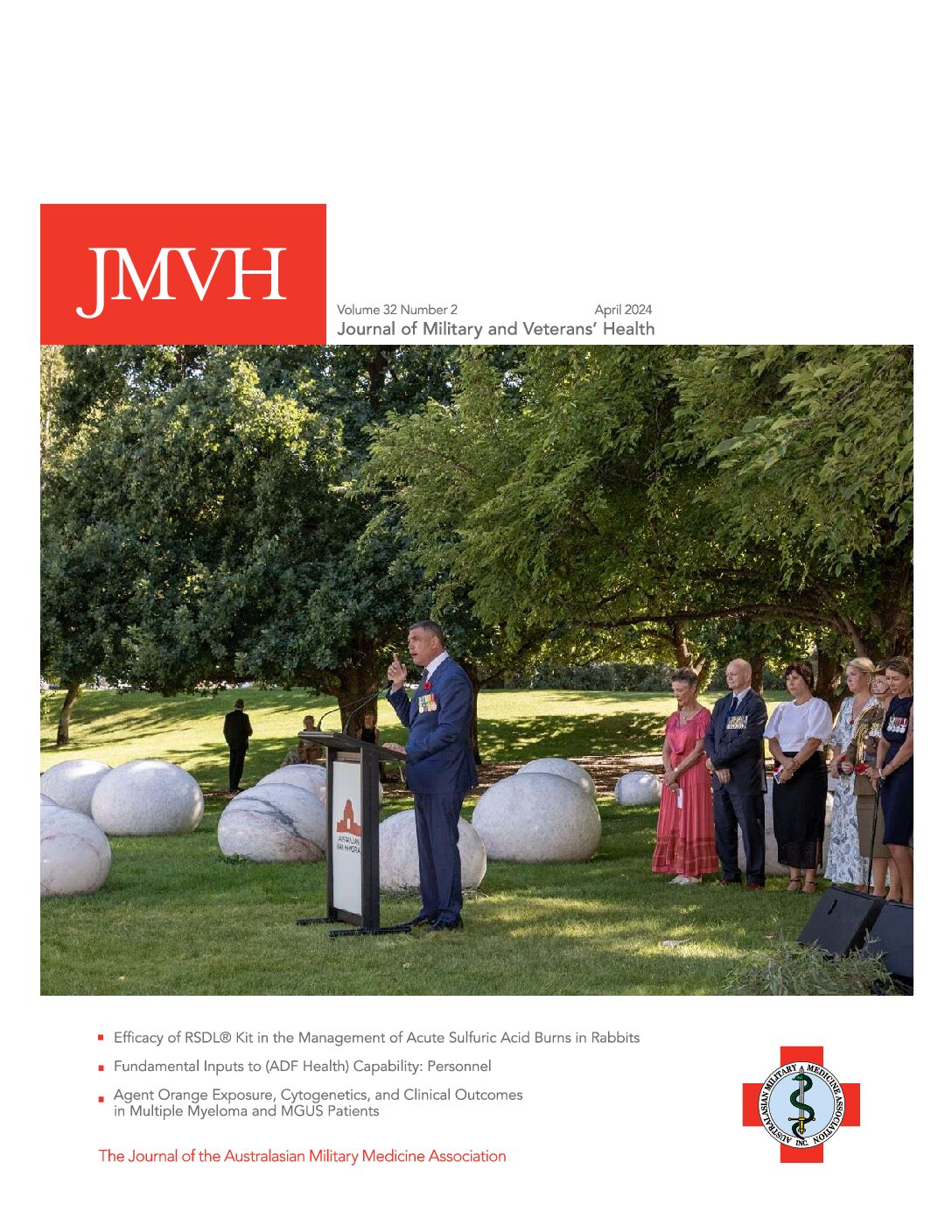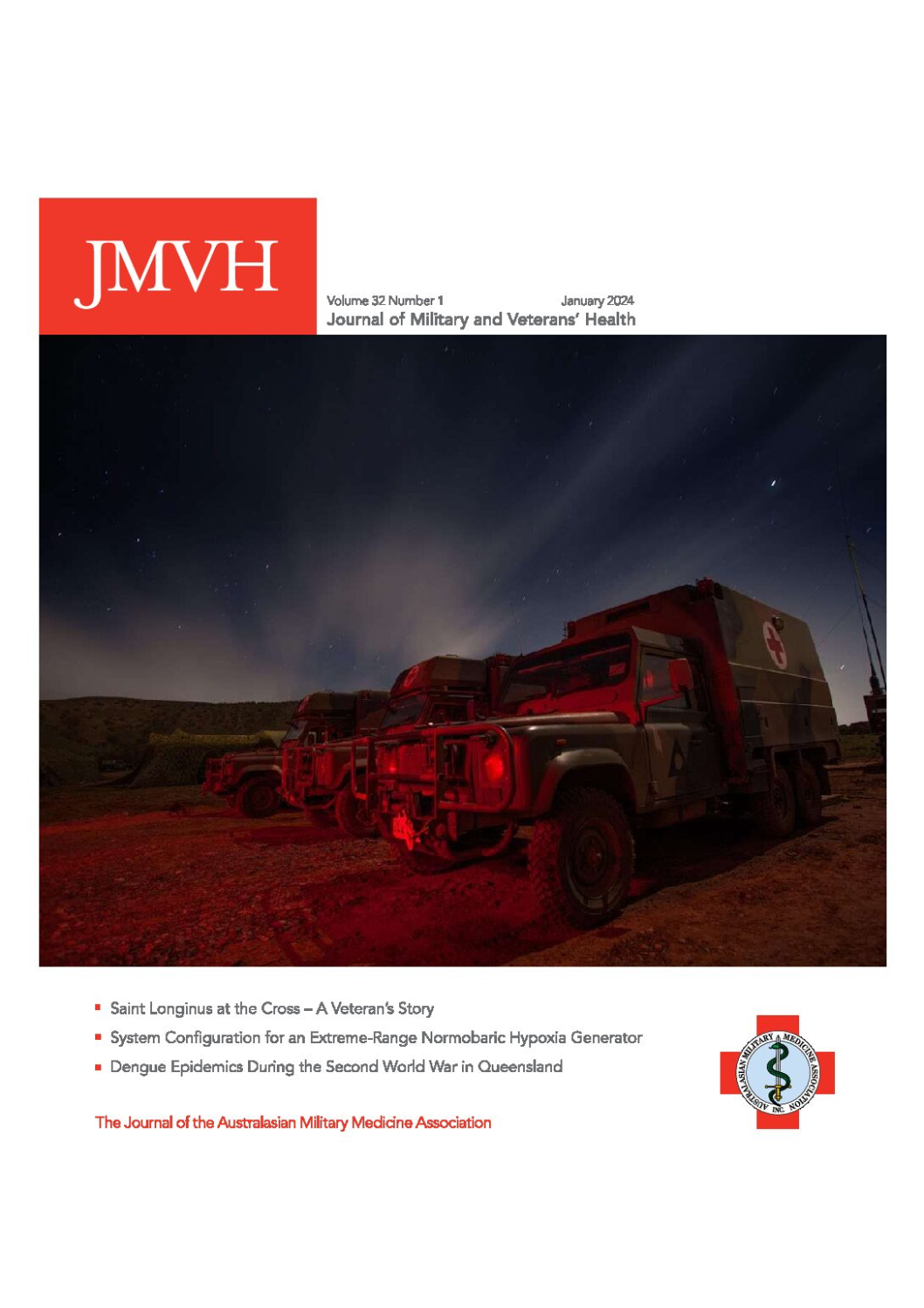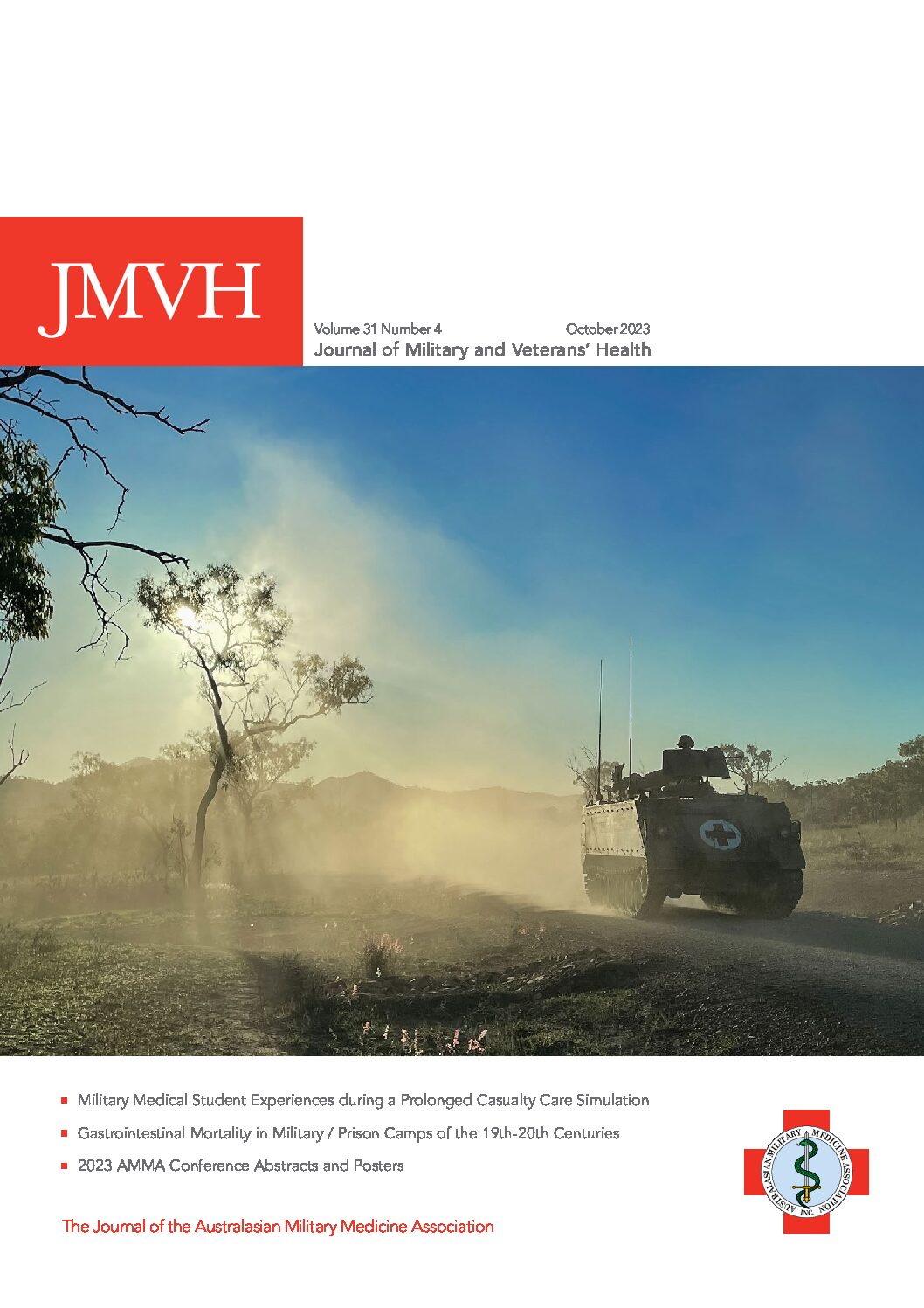07 March 2015
Dear Editor,
The article by Kristina Griffin regarding the evolution and role changes of Australian military medics1 requires some amplification and clarification regarding its scope and conclusions:
- The content and referencing of the article is clearly limited to those ADF medics who provide health support for operations It is respectfully suggested that the term ‘military medic’ is too generic, if it excludes ‘military medics’ who provide health support for maritime operations.
- Furthermore, the scope of the article implies that the role of the aforementioned shore-based military medics is limited to providing health support for combat It is also respectfully suggested that – like other ADF health personnel – all ADF medics (in particular those at the senior NCO level) facilitate ADF health capability, through their inimitable contributions to the following functions and roles:
- Supporting the development of and implementing operational health support
- Supporting (and in some cases providing) forward, tactical and strategic aeromedical
- Supporting (and in some cases providing) humanitarian aid / disaster relief
- Supporting (and in some cases providing) military medicine capability, with particular reference to aviation, submarine and especially diving
- Supporting the assessment of ADF personnel with respect to their health-related suitability for employment and deployment (typically via the ADF Medical Employment Classification System).
- Supporting (and in some cases providing) occupational and environmental health services (in particular occupational hygiene and infectious disease preventive health).
- Supporting (and in some cases providing) limited health promotion
- Supporting (and in some cases providing) treatment services for operations, exercises and other deployments. These are typically) related (but by no means limited) to primary care, often with at times very limited remote
The importance of ADF medics with respect to preventive health and primary care treatment services to preserve the fighting force should not be under-estimated: the article’s reference to 90% of combat deaths occurring on the battlefield fails to acknowledge that fact that even now, non-combat deaths and morbidity still significantly outnumber combat casualties2.
It is also respectfully suggested that the role of ADF medics (particularly at the senior NCO level) also includes their participation in the following Fundamental Inputs to Capability (FiCs)3 that makes the above functions and roles possible:
- Personnel management (including individual training);
- Supporting collective
- Facilitating and sustaining military health
- Managing and maintaining health
- Managing and maintaining health and other
- Managing and utilising major IT and other
- Facilitating and sustaining military health command and management
- Liaising with and coordinating support functions provided by non-health military
With specific reference to ADF medics who are primarily engaged in providing health support for maritime operations, it should be noted that:
- The article in correct in citing Butler4, with respect to indicating that military medical services have existed in Australia since the commencement of white settlement in However these services were provided in the first instance, by Navy and ex-Navy medical personnel5: The first Army health personnel did not arrive in Australia until the NSW (‘Rum’) Corps took over garrison duties from the First Fleet Royal Marines from June 1790.
- The origins of the modern RAN medic are derived from the UK Royal Navy, which extends at least to the 1740s6. From the 18th century ‘loblolly boys’, through the 19th century ‘sick berth stewards’ and the 20th century ‘sick berth attendants’ to the present day Navy medics, their role has always been far broader than caring for combat casualties, and includes supporting the provision of seagoing primary health care, and the inpatient care of non-combat casualties.
- The role of professionally qualified medical, nursing, dental, medical administration, and allied health personnel such as pharmacists, medical imagers and laboratory staff from all three Services are clearly evident and relevant to the provision of Maritime Role 2 health capability from the new Canberra class Landing Helicopter Dock (LHD) The role of Navy medics with respect to supporting the professional health staff aboard these platforms can be considered generally comparable to that performed by their Army and Air Force counterparts ashore.
- However the role of Navy medics (and their part-time non-medical Minor War Vessel Medical Care Provider colleagues) is far less well understood, with respect to how they provide health support for maritime operations aboard Navy’s other 16 Major Fleet Units, as well as 23 Minor War Vessels and six As these platforms often have no medical officer on board, these health staff are often required to undertake the same functions and roles enumerated previously (albeit not always to the same depth), under far more limited and remote supervision compared to most medics from the other Services. These considerations mean that, rather than its professional health officers, it is Navy’s medics (in particular its clinical managers), who are the linchpin of both combat and non-combat health support for maritime operations.
I trust this letter will be considered a constructive elaboration of the issues raised in the article.
Yours sincerely,
N. WESTPHALEN
MBBS (Adel), Dip Av Med, MPH, FRACGP, FACAsM, FAFOEM (RACP) psc
Commander, RAN






